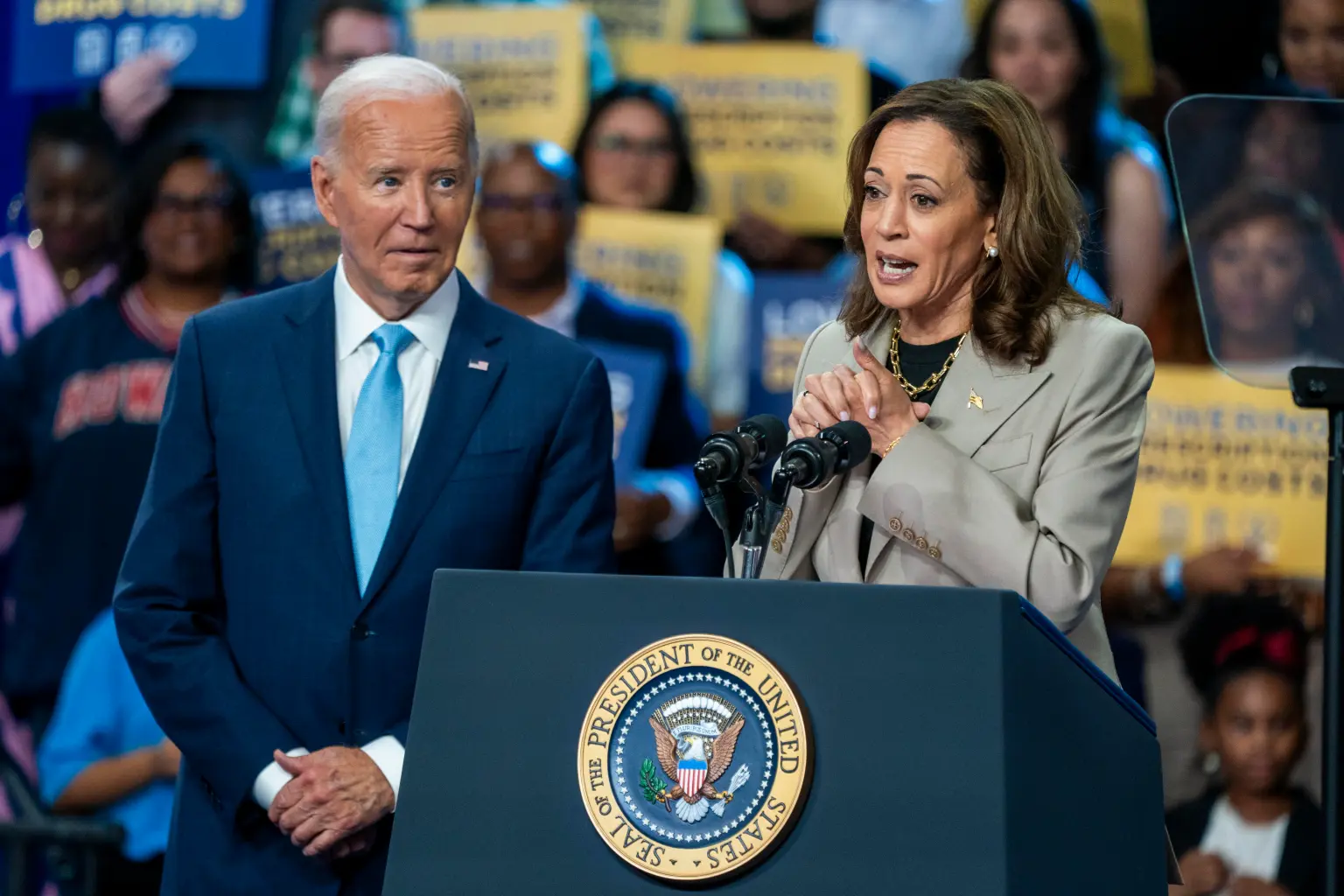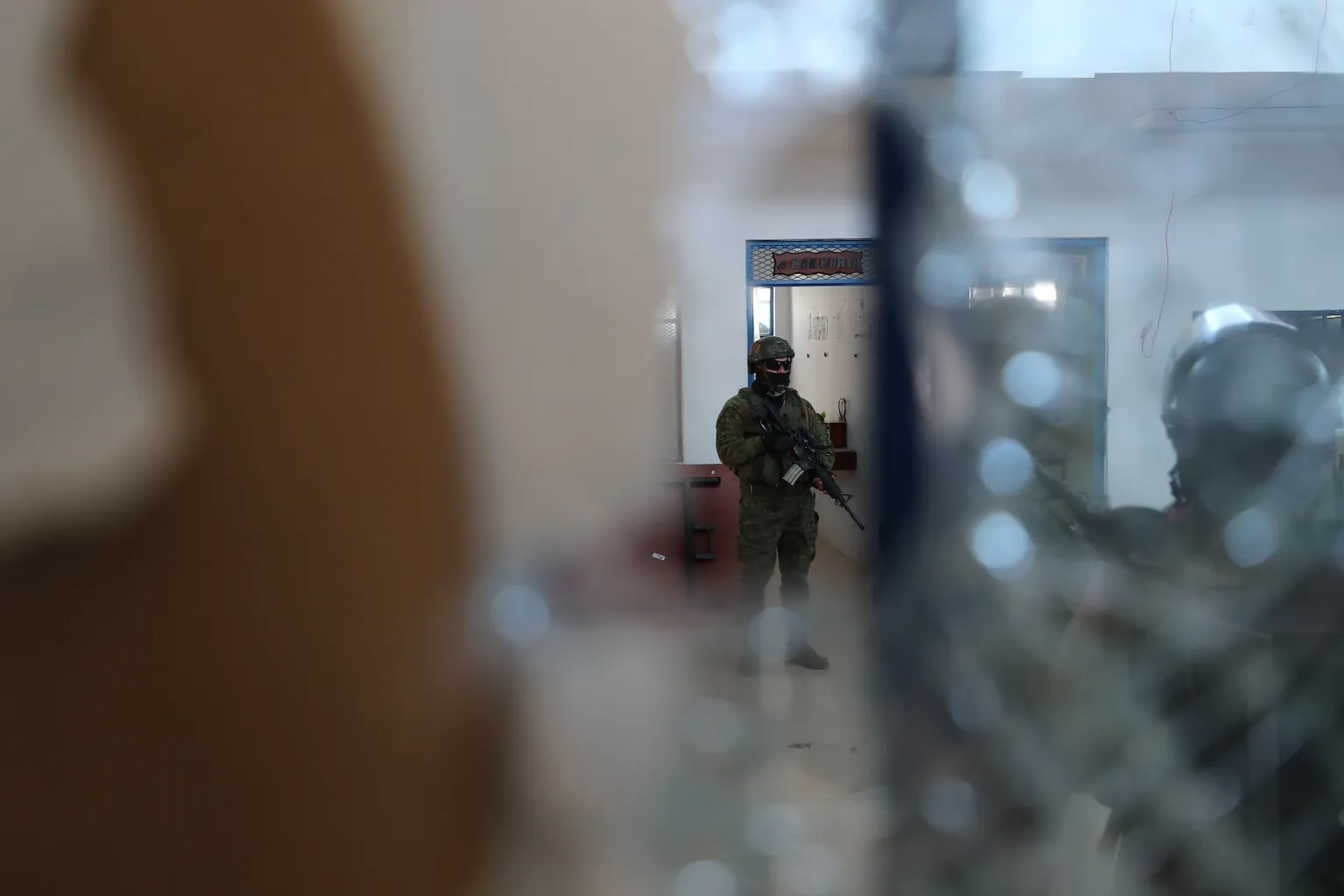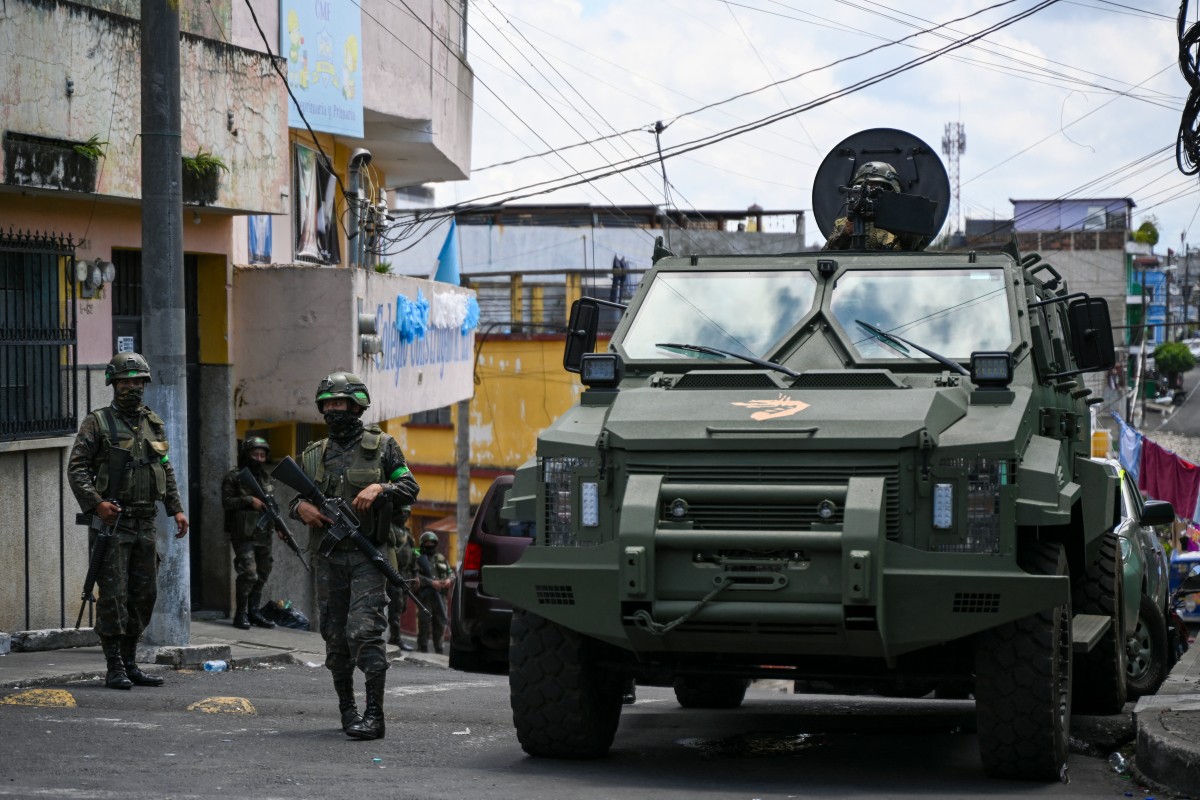Sin categoría
Joe Biden and Kamala Harris see the end of the conflict in Gaza closer after the death of the Hamas leader

The President of the United States, Joe Biden, and the vice president and Democratic candidate for the White House, Kamala Harris, reacted this Thursday to the death of the leader of Hamas, Yahya Sinwar, in an Israeli operation and pointed out that there is now more room to “end the war.”
In a statement, Biden said that Sinwar’s death is an “opportunity” to reach an agreement that “provides a better future for both Israelis and Palestinians” and that allows the Gaza Strip to access a “day after” without Hamas in power.
“Yahya Sinwar was an insurmountable obstacle to achieving all those goals. That obstacle no longer exists, but there is still a lot of work ahead,” said Biden, who later spoke on the phone with Israeli Prime Minister Benjamin Netanyahu.
According to the Israeli Prime Minister’s office, Biden congratulated Netanyahu on Sinwar’s death and both agreed that this fact opens an opportunity for the release of the hostages in the hands of Hamas.
The White House also indicated that the two leaders talked about “how to take advantage of this moment to take the hostages back home and close the conflict, guaranteeing Israel’s security and preventing Hamas from controlling Gaza again.”
The conversation took place while Biden was traveling to Germany on the Air Force One presidential plane.
Kamala Harris sees a better world
For his part, Harris, in statements to the press from Wisconsin, said that “Justice has been done. The United States, Israel and the rest of the world are a better place.”
According to the vice president, U.S. special operations and intelligence personnel worked closely with their Israeli counterparts to locate the leader of the Islamist group.
After Sinwar’s death, said the Democratic Party candidate in the US presidential elections, Hamas is decimated” and that opens up an “opportunity to end the war in Gaza.”
The end of the conflict, he said, must include security guarantees for Israel, the release of the hostages kidnapped by Hamas and the end of the “suffering” of the Palestinian people in Gaza.
“We will not give up these goals and I will always work to create a future of peace, dignity and security for all,” said the Democratic candidate.
Who was the leader of Hamas, Yahya Sinwar?
Born in a refugee camp in Jan Yunis, a city in southern Gaza, Sinwar was elected leader of Hamas in Gaza in 2017 after arbilling a reputation as a bitter enemy of Israel and on August 6 – after the murder in Tehran of the then head of the political bureau, Ismail Haniyeh – he was chosen to occupy the highest position in the organization chart of the Islamist group.
He represented the hardest and most belligerent line of the group and is considered by Israel as the mastermind of the attacks of October 7 against Israeli territory in which some 1,200 people were killed and another 250 were kidnapped, which made him the man most wanted by Israel.
Around 16:00 local time (13:00 GMT), the Israeli Army announced that it was investigating whether one of three militiamen killed in operations in Gaza was Sinwar, but said it could not confirm it until it had the results of fingerprint, dental and DNA tests, all of which were already positive.
According to the scarce information revealed so far, Sinwar’s death occurred yesterday, Wednesday 16, in a fortuitous encounter between Israeli troops and militiamen in Rafah, southern the Palestinian enclave, but it was not based on intelligence information.
According to the Army, together with him they did not find any kidnapped nor were their lives in danger.
Israeli media point out that Sinwar would have remained hidden with Israeli hostages in the tunnels of the Strip until the end of August, when Hamas murdered six kidnapped people in Rafah a day before Israeli troops approached them.
Sin categoría
Eight Killed in Series of Armed Attacks in Ecuador’s Manabí Province

At least eight people were killed in four separate armed attacks reported Sunday night in the cities of Manta and Montecristi, in Ecuador’s coastal province of Manabí, one of the areas hardest hit by the country’s escalating wave of criminal violence, local media reported on Monday.
The shootings occurred between 7:50 p.m. and 10:50 p.m. local time and affected several neighborhoods, as well as a family gathering, according to press reports. Police are investigating the incidents.
The first attack took place in the Los Artesanos sector of Montecristi, where a couple was shot dead in a public street.
Minutes later, in Manta’s 12 de Octubre neighborhood, a man was killed while sitting down. Police arrested a suspect at the scene and seized a 9mm magazine, authorities said.
A third incident occurred in the Bellavista area of Manta, when an armed assailant entered a home and shot a man during a family celebration. The attacker was captured by neighbors and sustained injuries.
The deadliest attack was reported at 10:50 p.m. in the Leonidas Proaño parish of Montecristi, where gunmen opened fire from two vehicles on a group of people, leaving four dead and five wounded.
According to Jaime Salgado, acting chief of the Manta Police District, officers recovered seven 7.62mm shell casings, consistent with rifle ammunition, and 14 .40-caliber casings at the scene.
With these killings, the Manta police district, a port and tourist area on Ecuador’s Pacific coast, has recorded 51 violent deaths so far in January 2026, according to official figures.
The attacks occurred amid a state of emergency declared by the government in December due to serious internal unrest in Manabí, where military operations have been intensified this month, particularly in high-conflict zones.
Sin categoría
El Salvador Launches Fourth Year of Ocean Mission to Protect Marine Ecosystems

El Salvador’s Ministry of Environment has launched the fourth consecutive year of “Ocean Mission,” a permanent strategy focused on the protection, restoration, and responsible management of marine ecosystems, linking conservation efforts from inland mountain ranges to the coastline.
During an event held at the Los Cóbanos Protected Natural Area, Environment Minister Fernando López highlighted the ecological, social, and economic value of the site, which is recognized as the country’s eighth wetland of international importance under the Ramsar Convention.
“We are in one of the most valuable natural treasures of our country, not only because of its beauty, but also due to the enormous ecological, social, and economic importance that Los Cóbanos holds for El Salvador,” López said.
The minister emphasized that this volcanic-origin ecosystem is home to coral reefs and key coastal-marine systems that serve as refuge, breeding, and feeding grounds for emblematic species such as sea turtles, cetaceans, and a wide diversity of fish.
“Protecting Los Cóbanos means protecting biodiversity, community livelihoods, the local economy, and our natural heritage,” López stated.
He also stressed that Ocean Mission goes beyond rhetoric, focusing instead on direct action framed within the National Environmental Education Policy. “We are not here to talk about environmental education; we are here to practice it,” he said, underscoring the guiding principle of moving from paper to action.
Sin categoría
Convicted gang member challenges Guatemala’s anti-gang law, citing Human Rights Violations

A member of a criminal gang currently facing sentencing for the crime of extortion has filed a constitutional appeal before Guatemala’s Constitutional Court against the recently approved and enacted Anti-Gang Law.
The appeal, submitted by Dylan Smaily Archila García, argues that the new legislation violates his fundamental human rights and claims there were procedural irregularities during its approval process, according to local Guatemalan media.
Archila García filed the motion just hours after the law took effect. The new legislation, passed by Guatemala’s Congress, increases penalties for crimes linked to gang activity and authorizes the construction of a mega-prison, modeled after El Salvador’s Center for the Confinement of Terrorism (CECOT).
Local outlets reported that in his petition, Archila García contends that the approval of the law did not comply with constitutional requirements and requests that the Court issue a ruling to annul the legislation, effectively halting its enforcement.
The appeal further claims that the Anti-Gang Law infringes on due process rights, as it allegedly fails to guarantee a fair criminal trial in which defendants can prove their innocence, undermining legal certainty and judicial security.
Through this legal action, the petitioner seeks to have the law suspended and ultimately struck down by the Constitutional Court, preventing it from being debated again in Congress.
-

 Central America5 days ago
Central America5 days agoSalvadoran fans plan birthday surprise for Shakira at historic show
-

 Central America4 days ago
Central America4 days agoGuatemala isolates Barrio 18 leader after attacks that killed 11 police
-

 Sports4 days ago
Sports4 days agoShakira ignites El Salvador with near sold-out residency at Mágico González Stadium
-

 International2 days ago
International2 days agoU.S. Health Department says CDC grants no longer match agency priorities
-

 Central America14 hours ago
Central America14 hours agoGuatemala to Phase Out Longstanding Medical Cooperation Agreement with Cuba
-

 International2 days ago
International2 days agoDespite homicide drop, overall deadly violence remains high in Mexico: study
-

 International2 days ago
International2 days agoICE Arrests Reach 379,000 Under Trump, Testimony Shows Amid Minnesota Shootings
-

 International14 hours ago
International14 hours agoOver 50 Civil Groups Urge House to Impeach DHS Secretary Kristi Noem
-

 International2 days ago
International2 days agoJet Fuel Crisis Hits Cuba: Flights Disrupted, Air Canada Cancels Services
-

 International2 days ago
International2 days agoSheinbaum Urges Mexico to ‘Jealously’ Guard Sovereignty at Air Force Anniversary
-

 International2 days ago
International2 days agoMEPs Approve Plan That Could Fast-Track Rejection of Some Asylum Claims
-

 International14 hours ago
International14 hours agoNew York’s New Archbishop Names Óscar Romero as His Favorite Saint
-

 International2 days ago
International2 days agoMexico Rises Slightly to 141st in Global Corruption Perceptions Index 2025
-

 International14 hours ago
International14 hours agoExclusive Tucson Neighborhood Shaken by Disappearance of Savannah Guthrie’s Mother
-

 International2 days ago
International2 days agoChile Unveils Latam-GPT to Give Latin America Its Own AI Model


























